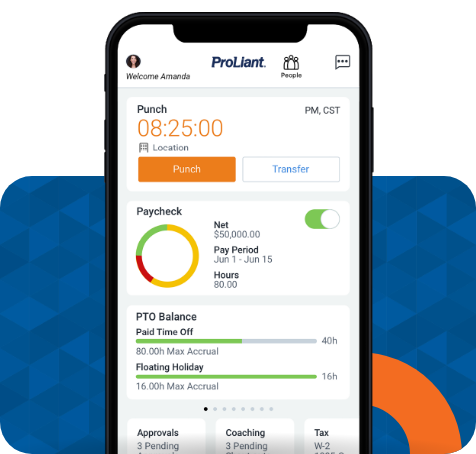What are the Different Kinds of Employment Taxes?
Payroll or employment taxes are federal and state taxes based on employee taxable compensation. In addition, businesses are responsible for several taxes that must be withheld from employees or paid by the employer during the established period, including:
Federal Income Tax
Employers withhold federal income tax from employees' wages based on information from the employee's form W-4 and Withholding Certificate and the appropriate withholding table and methods provided by the IRS.
Withholding federal income tax from an employee's wages is meant to cover what they would owe when it comes time to pay their taxes each spring, including Social Security and Medicare taxes and an additional Medicare tax.
State and Local Income Tax
If an employer hires an employee working in a state or local municipality with income taxes, they must withhold and report those taxes withheld. Tax laws vary depending on the state in which an employee works. For example, Alaska, Florida, Nevada, South Dakota, Texas, Washington, and Wyoming do not have an income tax. However, some cities have income taxes requiring additional withholding.
Social Security and Medicare Taxes (FICA)
Employees and employers pay Social Security and Medicare taxes equally. Employers can determine the amount of withholding for Social Security and Medicare taxes by multiplying each payment by the employee tax rate, updated yearly.
OASDI Social Security
The Social Security tax has a wage base limit, which may change yearly. The wage base limit is the Old Age, Survivors, and Disability Insurance (OASDI). It is used to provide benefits to people who have retired, dependent children, spouses, and disabled individuals who have not reached retirement age.
Medicare
The Medicare tax is a payroll tax that funds the Medicare program in the US. Medicare is a federal health insurance program that provides coverage to people 65 and older, those with disabilities, and people with certain medical conditions. The Medicare tax comprises the Medicare Hospital Insurance (HI) tax and the Medicare Supplemental Medical Insurance (SMI) tax.
Federal Unemployment Tax Act (FUTA)
The Federal Unemployment Tax Act (FUTA) is paid by employers based on the FUTA wage base and can differ from state to state. The FUTA funds federal assistance to states so they can cover unemployment benefits paid to employees terminated from their jobs. This tax applies only to the first $7,000 from each employee's annual wages (as of 2023). In addition, employers may receive a credit that reduces the tax unless the state is a credit reduction state.
Additional Medicare Tax
Employers must also withhold Additional Medicare Tax on an individual employee's wages and compensation if it exceeds a certain amount in a year. As of 2023, this tax is 0.9% of earned income over $200,000 ($250,000 for joint borrowers). The employer must begin withholding this tax in the pay period the employee's wages exceed the set amount. Employers don't pay a matching tax for the Additional Medicare Tax as they do with the Medicare tax.
W-4 Employee Income Tax
This income tax withholding is based on information from employee Forms W-4, and employees pay it.






